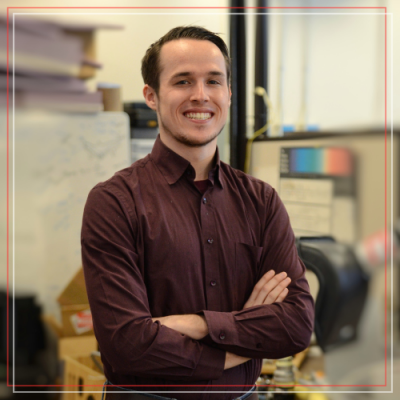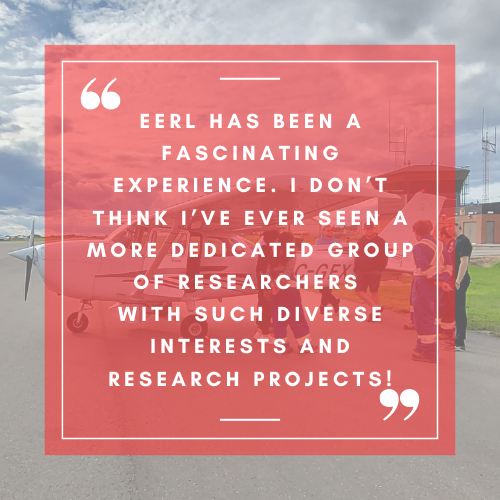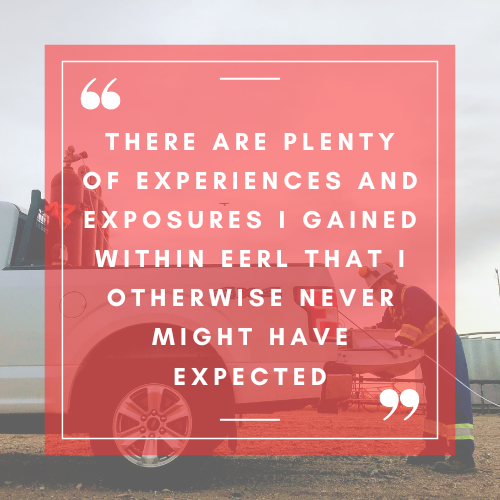Congratulations to Fraser Kirby!
 Fraser successfully defended his master’s thesis titled “Development of a Tunable Diode Laser Absorption Spectroscopy System for Quantification of Transient Emissions from Liquid Hydrocarbon Storage Tanks”. This project revolved around the storage containers predominantly used to store extracted hydrocarbon from the oil and gas industry and monitoring of the associated volatile organic compound (VOC) emissions from these tanks.
Fraser successfully defended his master’s thesis titled “Development of a Tunable Diode Laser Absorption Spectroscopy System for Quantification of Transient Emissions from Liquid Hydrocarbon Storage Tanks”. This project revolved around the storage containers predominantly used to store extracted hydrocarbon from the oil and gas industry and monitoring of the associated volatile organic compound (VOC) emissions from these tanks.
Did you know that most traditional electronic monitoring equipment is largely not compatible with the hazardous and potentially explosive operating environments of the oils and gas pads, and emissions as a result of venting are not generally monitored or well defined? To tackle this issue, Fraser developed a self-contained, in-line optical system for controlled testing on an instrumented research tank in Devon, AB. His prototype is intended to be a fast response sensor to monitor simulated operational losses from storage tanks. It will help address issues with monitoring of vented emissions and through subsequent refinement provide insights into better operational practices.
 Fraser has always been fascinated with designing and understanding how things work and how they can be further improved: from disassembling tools for troubleshooting to redesigning and 3D printing components for added functionality. He looks forward to other practical hands-on experiences, continuing to develop his mechanical design skills and helping address the developing problems of tomorrow.
Fraser has always been fascinated with designing and understanding how things work and how they can be further improved: from disassembling tools for troubleshooting to redesigning and 3D printing components for added functionality. He looks forward to other practical hands-on experiences, continuing to develop his mechanical design skills and helping address the developing problems of tomorrow.
During his time at the Energy & Emissions Research Lab (EERL) as a Master’s student, Fraser had an opportunity to participate in multiple projects and travel for field campaigns across Canada. He appreciated this active, first-hand experience of development and follow-through deployment, unique to EERL, as well as people he met along the way.
Fraser’s advice to anyone who is interested in joining the Faculty of Engineering and EERL: “There are a ton of opportunities across engineering and more broadly STEM to widen your understanding and get to learn and apply theoretical concepts in application. Don’t be shy, engineering takes plenty of forms and there are many potential projects out there that are available to pursue. The EERL team is always expanding, and there is significant interest across the research team to try new and exciting things when it comes to developing new insights into present day issues”.